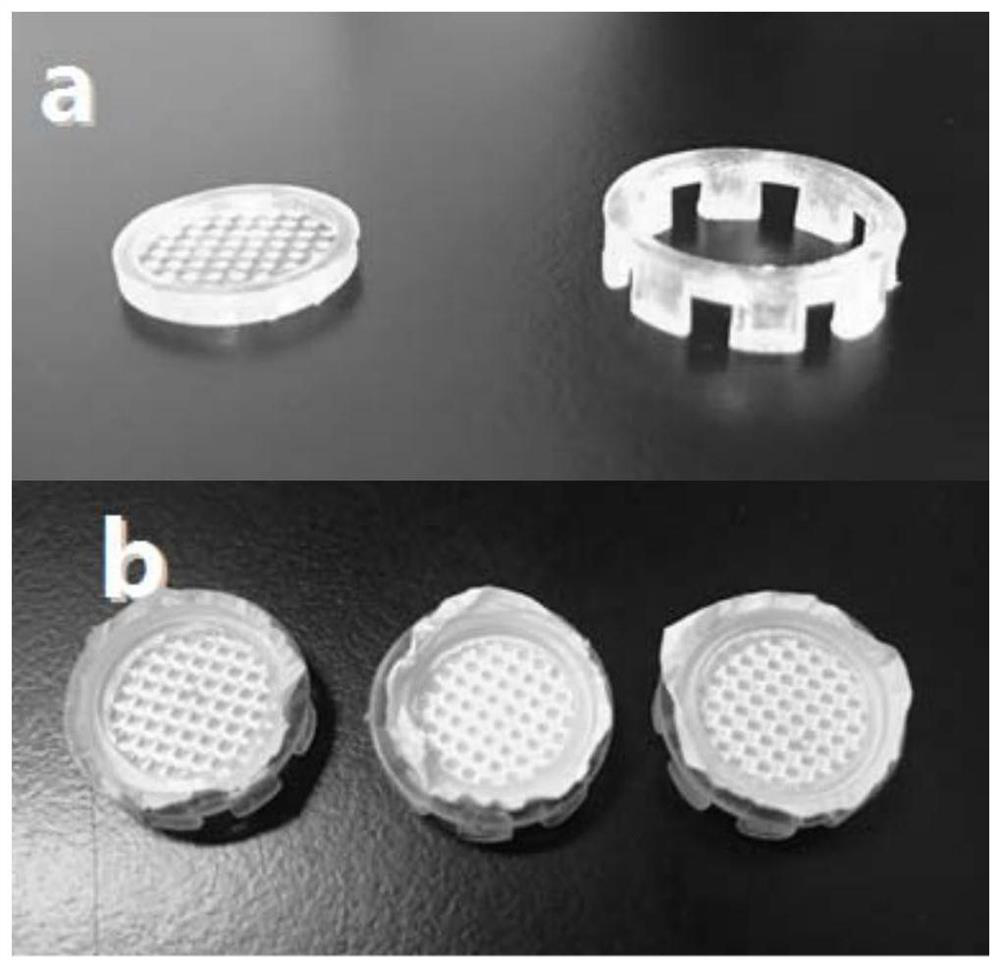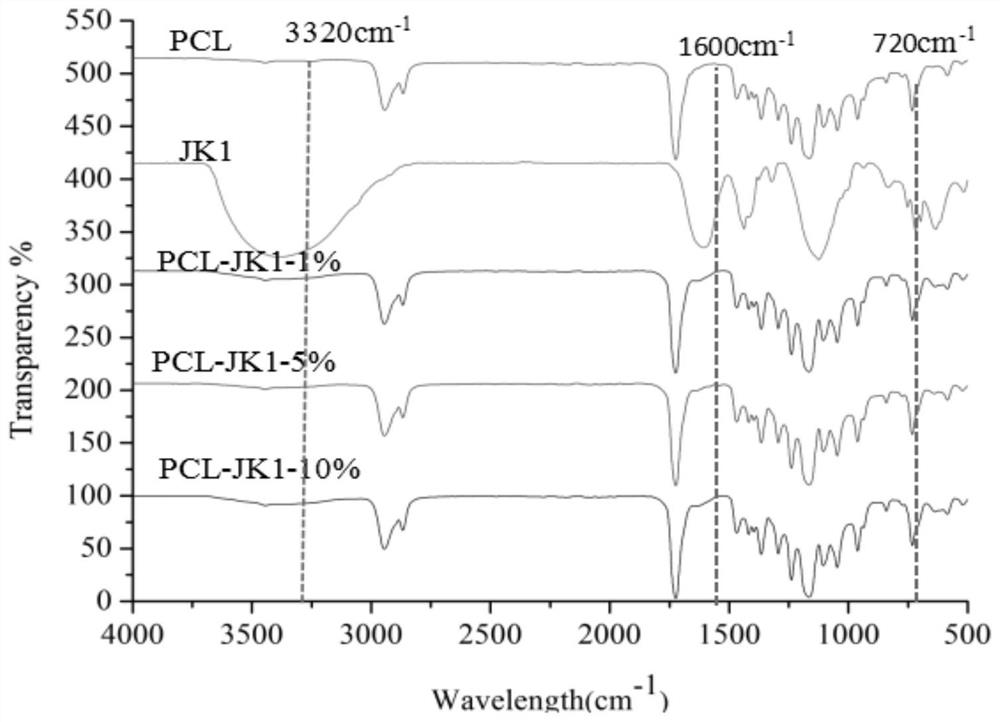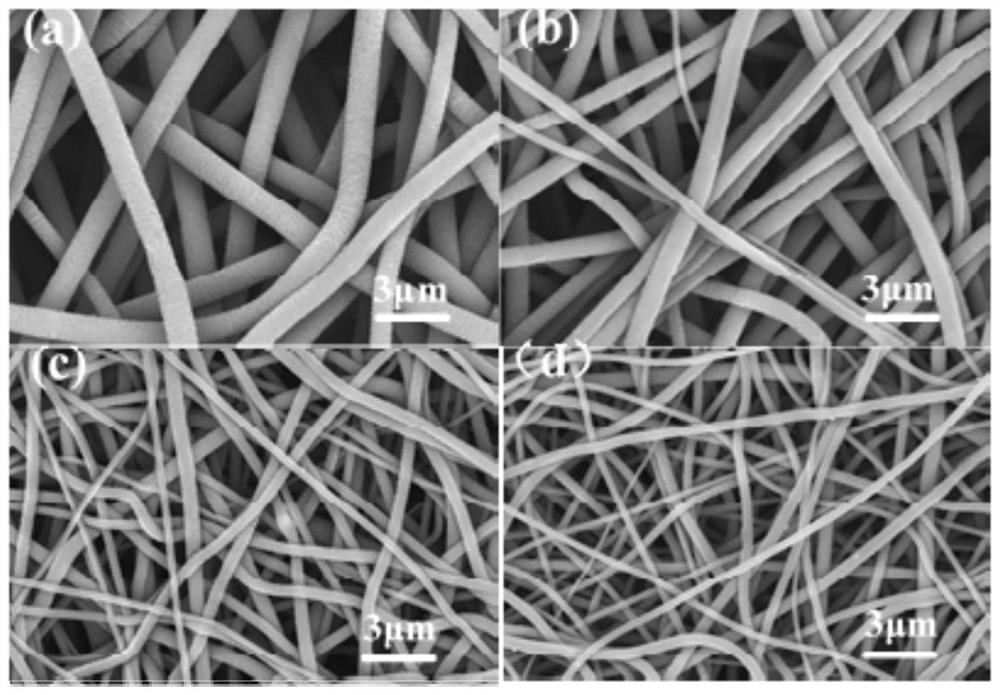A three-dimensional culture method of tumor stem cells
A technology of three-dimensional culture of tumor stem cells, which is applied in the field of three-dimensional culture of new tumor stem cells, can solve the problems of easy aggregation and differentiation, slow proliferation of tumor stem cells, etc., and achieve the effect of fine structure, conducive to spherical growth, and convenient use
- Summary
- Abstract
- Description
- Claims
- Application Information
AI Technical Summary
Problems solved by technology
Method used
Image
Examples
Embodiment 1
[0032] 1. Use FreeCAD design software to make a honeycomb scaffold model, inject acrylic resin into an LCD light-curing 3D printer and print a honeycomb-shaped culture scaffold. The curing wavelength is 405nm. The structure of the honeycomb-like culture scaffold is as follows: figure 1 As shown in a, it consists of a honeycomb cell culture rack (left) and a fixed bracket (right).
[0033] 2. Add 0.4800g of polycaprolactone to 3.2mL of a mixture of chloroform and methanol with a volume ratio of 7:1, stir at room temperature for 12h, then add 0.0480g of JK1, continue to stir for 12h, and then add 0.096g of fibroin , stir evenly to obtain spinning solution. The concentration of polycaprolactone in the spinning solution is 0.15 g / mL, and the mass ratio of polycaprolactone to JK1 and fibroin is 1:0.1:0.2.
[0034] 3. Use a glass syringe to suck up 1mL of the spinning solution in step 2, and connect a stainless steel needle to the glass syringe filled with the spinning solution, an...
Embodiment 2
[0038]In step 2 of this example, 0.4800 g of polycaprolactone was added to 3.2 mL of a mixed solution with a volume ratio of chloroform and methanol of 7:1, stirred at room temperature for 12 h, and then 0.00480 g of JK1 was added, continued to stir for 12 h, and then 0.096 g of fibroin was added, and the mixture was stirred evenly to obtain a spinning solution. The concentration of polycaprolactone in the spinning solution is 0.15 g / mL, and the mass ratio of polycaprolactone to JK1 and fibroin is 1:0.01:0.2. After electrospinning using the spinning solution according to the method of step 3 in Example 1, a polycaprolactone / JK1 composite fiber membrane was attached to the bottom of the honeycomb cell culture frame, which was recorded as PCL-JK1-1%. Other steps are the same as in Example 1.
Embodiment 3
[0040] In step 2 of this example, 0.4800g of polycaprolactone was added to 3.2mL of a mixed solution with a volume ratio of chloroform and methanol of 7:1, stirred at room temperature for 12h, then 0.0240g of JK1 was added, continued stirring for 12h, and then 0.096 g of fibroin was added, and the mixture was stirred evenly to obtain a spinning solution. The concentration of polycaprolactone in the spinning solution is 0.15 g / mL, and the mass ratio of polycaprolactone to JK1 and fibroin is 1:0.05:0.2. After electrospinning using the spinning solution according to the method of step 3 of Example 1, the bottom of the honeycomb cell culture frame was attached with a polycaprolactone / JK1 composite fiber membrane, which was recorded as PCL-JK1-5%. Other steps are the same as in Example 1.
PUM
| Property | Measurement | Unit |
|---|---|---|
| height | aaaaa | aaaaa |
| length | aaaaa | aaaaa |
| concentration | aaaaa | aaaaa |
Abstract
Description
Claims
Application Information
 Login to View More
Login to View More - R&D
- Intellectual Property
- Life Sciences
- Materials
- Tech Scout
- Unparalleled Data Quality
- Higher Quality Content
- 60% Fewer Hallucinations
Browse by: Latest US Patents, China's latest patents, Technical Efficacy Thesaurus, Application Domain, Technology Topic, Popular Technical Reports.
© 2025 PatSnap. All rights reserved.Legal|Privacy policy|Modern Slavery Act Transparency Statement|Sitemap|About US| Contact US: help@patsnap.com



